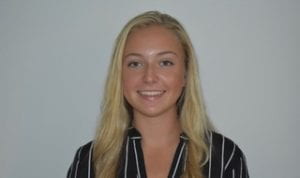 Inequality in the education system is often debated and increasingly in the media due to COVID-19 and the global transition to remote learning. NYU Washington, DC recently hosted a virtual discussion to participate in the conversation on inequity in education and education reform, with special attention to the COVID-19 pandemic. Entitled The Education Divide: Inequity in the Age of COVID-19, this event was conceived of by former DC Dialogues Executive Board Student Member Brianna Hall, a rising Steinhardt sophomore. The dialogue aimed to bring attention to the inequalities in the United States K-12 education system that hinder higher education being an opportunity for all.
Inequality in the education system is often debated and increasingly in the media due to COVID-19 and the global transition to remote learning. NYU Washington, DC recently hosted a virtual discussion to participate in the conversation on inequity in education and education reform, with special attention to the COVID-19 pandemic. Entitled The Education Divide: Inequity in the Age of COVID-19, this event was conceived of by former DC Dialogues Executive Board Student Member Brianna Hall, a rising Steinhardt sophomore. The dialogue aimed to bring attention to the inequalities in the United States K-12 education system that hinder higher education being an opportunity for all.
Finding that the COVID-19 crisis made existing inequalities, such as access to technology and the uneven distribution of resources, even more apparent, Hall explains that she wanted to organize this dialogue “because educational equality is the cornerstone to social equality.” Hall believes that a quality education is a crucial “building block to a brighter future” regardless of background. And further believes that those fortunate enough to obtain a higher education have a responsibility to have discussions about and consider solutions to the enduring inequalities in the education system. “We must never stop talking about those that the education system leaves behind,” says Hall, “and those future children the education system will continue to leave behind unless reform is implemented.”
One reform that Hall believes is “critical” to improving the education system is “educating the whole child.” This includes teaching children practical life and personal skills alongside the academic curriculum so that students leave school with the tools necessary to move forward in all areas of life. Hall also believes that it is important to “emphasize the value of each student’s individual culture and identity” from an early age to foster confidence and self-acceptance. Another reform that Hall sees as key is “increased public school funding and increased teacher pay.” With this increased funding, she would like to see “high standards of dedication, quality and professionalism” and believes teachers should receive summer training on how to support students emotionally and socially as well as academically.
 The discussion naturally focused on possible solutions to mitigate inequalities and also ideas to better prepare school systems for future, similar extenuating circumstances. The panel included notable experts including Dr. Martha Kanter, Executive Director of the College Promise Campaign and a Senior Fellow at NYU Steinhardt’s Institute for Higher Education Policy; Dr. Tiffany Jones, Senior Director of Higher Education Policy, The Education Trust; Dr. David Kirkland, Executive Director, NYU Metropolitan Center for Research on Equity and the Transformation of Schools, Associate Professor of English and Urban Education, NYU Steinhardt; and Dr. Hua-Yu Sebastian Cherng, Associate Professor, International Education, NYU Steinhardt. Hall moderated the discussion.
The discussion naturally focused on possible solutions to mitigate inequalities and also ideas to better prepare school systems for future, similar extenuating circumstances. The panel included notable experts including Dr. Martha Kanter, Executive Director of the College Promise Campaign and a Senior Fellow at NYU Steinhardt’s Institute for Higher Education Policy; Dr. Tiffany Jones, Senior Director of Higher Education Policy, The Education Trust; Dr. David Kirkland, Executive Director, NYU Metropolitan Center for Research on Equity and the Transformation of Schools, Associate Professor of English and Urban Education, NYU Steinhardt; and Dr. Hua-Yu Sebastian Cherng, Associate Professor, International Education, NYU Steinhardt. Hall moderated the discussion.
Hall found moderating the event a meaningful experience and was impressed with the passion and knowledge of the panelists. One aspect of the discussion that she considered “illuminating” related to the COVID-19 pandemic because “people largely view the transition to remote learning and the closure of schools as the crisis, however, there has always been a crisis of inequality in education – COVID-19 just makes this crisis impossible to ignore.” In exploring this theme, Dr. Kirkland emphasized the structure of vulnerabilities that create what we often call “marginalized children.” These vulnerabilities can be related to a child’s socio-economic status – living in poverty, food or housing insecurity, insufficient adult support at home, coming to school hungry or with inadequate clothing, needing to work before and after school. Prejudice is another common structural vulnerability. Students facing assumptions or bias at school must study in a hostile environment, which compromises their abilities to learn or grow successfully. Discussing these vulnerabilities and the obstacles children face was “not an easy discussion to have,” according to Hall, but she believes it is important not to shy away from those difficult or uncomfortable conversations.
Hall was pleased with the discussion, saying, “It was everything that I anticipated and hoped for.” She hopes that this dialogue will continue to spur conversations generating ideas and solutions about how to improve the education system.